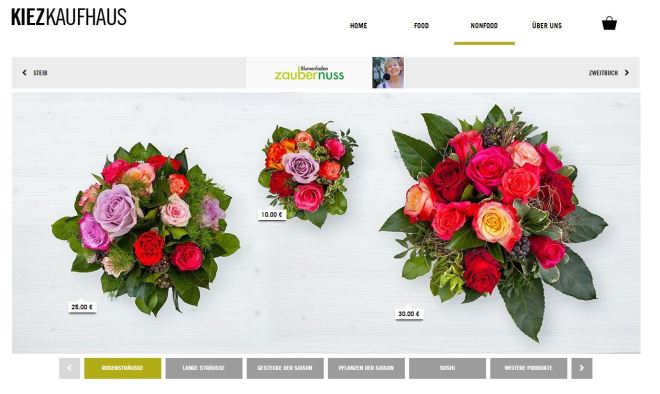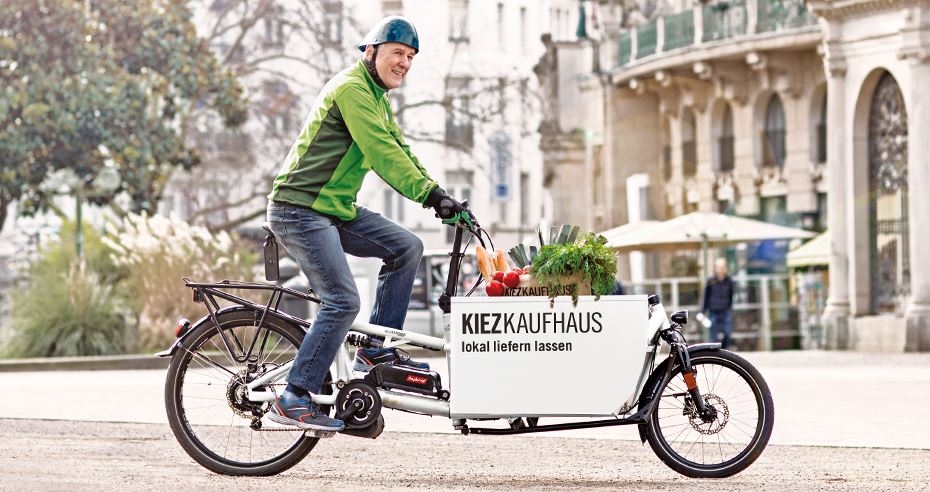In the latest installment in our series, Everything In Europe Is So Freakin’ Neat, we bring you a German online startup that offers same-day delivery of products from local stores — by senior citizens on cargo bikes! Yup: You don’t have to get up from your computer to get groceries; no carbon is emitted in the delivery; and you’re supporting local businesses and giving old folks a new life purpose. A truly virtuous cycle. (Ahem.)
The startup, called Kiezkaufhaus (which translates to “neighborhood department store”), was born when project-leader Nanna Beyer noticed a huge problem with online delivery services: The products had to be delivered by truck, often over hundreds of miles, belching tons of climate-changing carbon dioxide in the process. Here’s more from FastCo’s Adele Peters:
“It all started a year ago, when we saw the piles of packages that employees had ordered online and that they had delivered to the agency,” says Nanna Beyer, who led the project for the local design firm Scholz & Volkmer. “It’s all very convenient. But if you look behind that there are some things going wrong.”
A book ordered online might come from hundreds of miles away, for example, even when a publisher happens to be around the corner. “There’s an armada of trucks on the German roads delivering all of that stuff,” Beyer says. “Even more, 800,000 packages are returned—daily. That’s around 400 tons of CO2. Not including the waste of packaging.”
Sound familiar? Think of all the things we order online — the shoes from Zappos, groceries from Fresh Direct, and everything you can imagine from Amazon. We can’t know for sure how much CO2 Amazon’s trucks spew, because the company doesn’t release its emissions data to the public, because evil. But a major investigation by the New York Times found that online retailers and tech companies are not the paragons of efficiency they’d have us believe.
Kiezkaufhaus, on the other hand, is clearing the air and fighting against monopolistic behavior by encouraging consumers to shop at small, local businesses in and around Wiesban, Germany, where the site is being trialed now.

Items for sale from the local flower shop Blumenladen Zaubernuss.Kiezkaufhaus
Here’s FastCo:
The site is “closed” on weekends to encourage people to shop at local stores in person when they have the time. It offers books, gifts, coffee, wine, and other groceries, and plans to add clothing, shoes, and other products in the future. The prices, the designers say, can stay competitive. “If we get the logistics right, we believe there’s even more variety and fair prices in local online shopping than in ‘big retail’,” says Beyer.
Now, to figure out how to move to Germany with zero carbon emissions…



